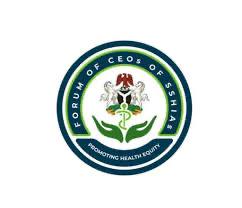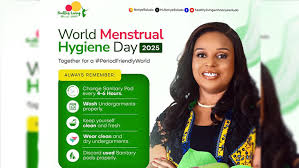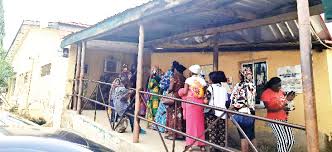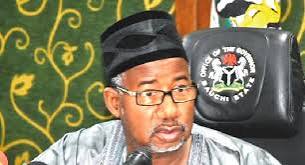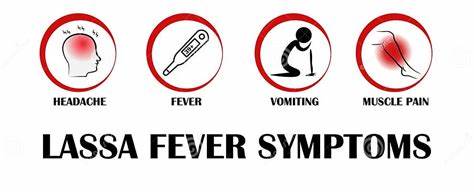
The Nigeria Centre for Disease Control and Prevention has listed 357 persons for follow-up over the possibility of being infected with Lassa fever, The PUNCH reports. This is following the death of a 31-year-old physician who returned from the United Kingdom on February 27, 2025, and died of Lassa fever on March 1, 2025. The physician was said to have been managed at a private health facility in Ondo State after returning from a trip abroad. “Laboratory investigation confirmed the result as Lassa fever-positive through PCR testing on Tuesday, 04/03/2025. The patient was reported to have visited his fiancée in Edo State, as well as family and friends, before travelling,” the centre stated. Data obtained from the NCDC on Wednesday showed that 535 persons have been infected with the disease out of the 2,728 suspected cases across 13 states, and 75 local government areas. It also noted that over 100 persons have been killed as of March 2, 2025, with a case fatality rate of 18.7 per cent. Lassa fever is an acute viral haemorrhagic fever caused by the Lassa virus. The data for week nine of the year revealed that the number of new confirmed cases decreased from 54 in week 8, of 2025 to 29, and the cases were reported in Ondo, Bauchi, Edo, Taraba, Ebonyi, Plateau, Cross River, Nasarawa and Enugu states. The report partly read, “Cumulatively in Week 9, 2025, 100 deaths have been reported with a CRF of 18.7 per cent which is marginally lower than the CFR for the same period in 2024 (18.8 per cent). “In total for 2025, 13 states have recorded at least one confirmed case across 75 LGAs. 72 per cent of all confirmed Lassa fever cases were reported from these three states (Ondo, Bauchi, and Edo) while 28 per cent were reported from 10 states with confirmed Lassa fever cases. Of the 72 per cent confirmed cases, Ondo reported 31 per cent, Bauchi 24 per cent, and Edo 17 per cent. “The predominant age group affected is 21-30 years (Range: 1 to 94 years, Median Age: 30 years). The male-to-female ratio for confirmed cases is 1:0.8. The number of suspected cases decreased compared to that reported for the same period in 2024.” Meanwhile, so far in 2025, 17 healthcare workers have been infected with the disease in Ondo (eight), Bauchi (four), Edo (one), Taraba (two), and Gombe (two). The confirmed cases were confirmed in Ondo (168), Bauchi (128), Edo (93), Taraba (83), Ebonyi (17), Kogi (14), Gombe (11), Plateau (nine), Benue (five), Nasarawa (three), Cross-River (two), Delta (one), and Enugu (one). The deaths were recorded in Ondo (21), Bauchi (10), Edo (15), Taraba (26), Ebonyi (eight), Kogi (four), Gombe (six), Plateau (three), Benue (three), Nasarawa (three), and Cross River (one). The NCDC added that the National Lassa fever multi-partner, multi-sectoral Incident Management System has been activated to coordinate the response activities at all levels.
- NAFDAC unveils app to detect fake drugs –
The National Agency for Food and Drug Administration and Control has urged Nigerians to join the fight against the circulation of counterfeit and fake medical products. The agency stated that this could be achieved through the use of its latest verification app, the Greenbook. The Director-General of NAFDAC, Prof Mojisola Adeyeye, made the call on Wednesday at the opening ceremony of a two-day sensitization and awareness workshop on the Greenbook, traceability project, and pediatrics policy in Port Harcourt, Rivers State. Adeyeye explained that the NAFDAC Greenbook, a comprehensive database of registered drug products in Nigeria, was introduced to help the agency counter the advanced methods used in the production and distribution of counterfeit medicines. Adeyeye, represented by the Director of the Post-Marketing Surveillance Directorate, NAFDAC, Fraden Bitrus, emphasized that the workshop aims to ensure regulators and stakeholders work together in combating substandard and falsified medical products. She said, “Counterfeiters have become more sophisticated in advancing their trade. Therefore, the agency is committed to using technology and modern methods to mitigate their activities, making stakeholder sensitization essential. “The NAFDAC Greenbook is an online resource for identifying a product’s source. Users can enter the product name, brand name, or registration number to verify its registration status. “If the product is listed in the Greenbook, it signifies that it has been registered by NAFDAC and is considered authentic. The Greenbook serves as a tool to help consumers identify and avoid potentially fake or substandard products.” The NAFDAC DG further revealed that Nigeria is the first country in Africa to use this technology and the second in the world. She encouraged stakeholders in the healthcare sector to support initiatives aimed at eliminating substandard and falsified medical products and ensuring the provision of quality, safe, and effective medicines for Nigerians. In her goodwill message, the Rivers State Commissioner for Health, Adaeze Oreh, assured the state’s commitment to working with NAFDAC to clamp down on counterfeit drugs. The NAFDAC Director for the South-South Zone, Oligbu Chukwuma, stated that measures were in place to ensure state coordinators in the zone implement necessary steps to curb the spread of counterfeit medical products. Speaking to journalists on the sidelines of the event, Chukwuma said, “I visit the states, and they submit monthly reports on their activities, supported with evidence. This is all part of the anti-counterfeit measures in place. As you can see, there is zero tolerance for counterfeit drugs in Nigeria.
Ensuring the provision of quality, safe, and effective medicines for Nigerians. In her goodwill message, the Rivers State Commissioner for Health, Adaeze Oreh, assured the state’s commitment to working with NAFDAC to clamp down on counterfeit drugs. The NAFDAC Director for the South-South Zone, Oligbu Chukwuma, stated that measures were in place to ensure state coordinators in the zone implement necessary steps to curb the spread of counterfeit medical products. Speaking to journalists on the sidelines of the event, Chukwuma said, “I visit the states, and they submit monthly reports on their activities, supported with evidence. This is all part of the anti-counterfeit measures in place. As you can see, there is zero tolerance for counterfeit drugs in Nigeria.”

